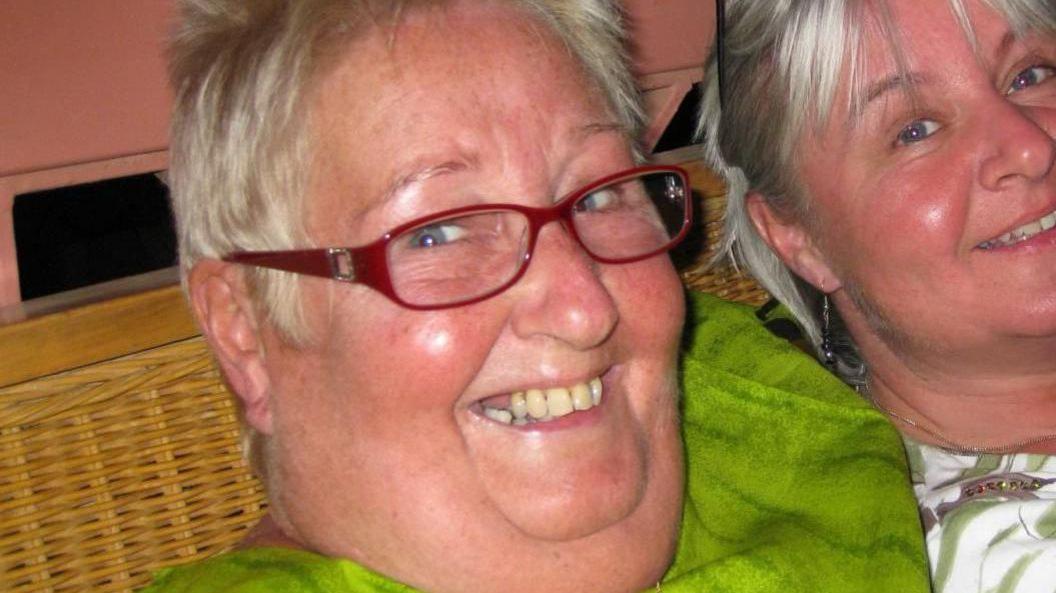Eyesight fears as hospital delays hit record high
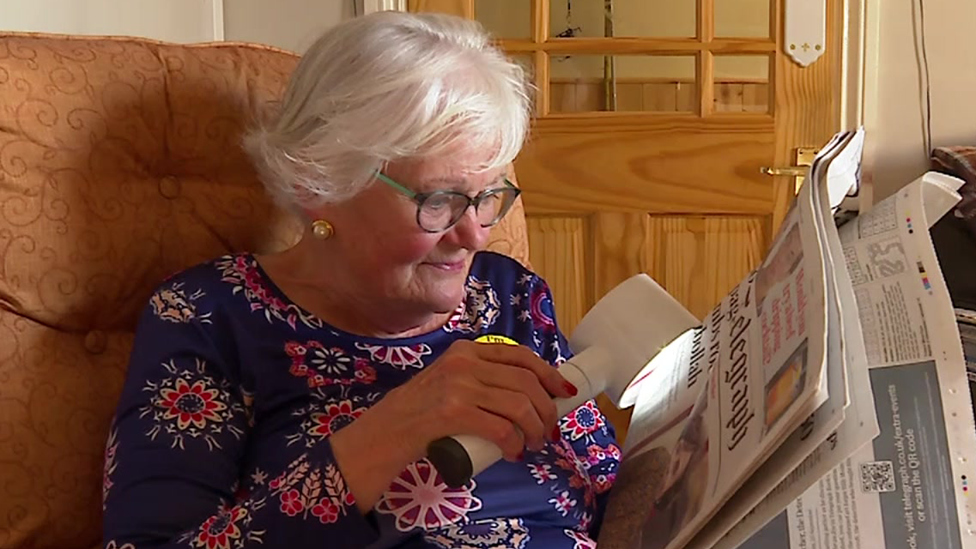
Pam Perceval-Maxwell say the repercussions of not getting eye treatment in a timely fashion was people may lose their sight earlier than otherwise
- Published
A woman who relies on regular injections to preserve her sight said she worries each night she will wake up blind, because of delayed appointments.
Pam Perceval-Maxwell is one of the thousands in Wales affected by delays in eye care.
Analysis of the latest longest waiting lists shows two-year waits for hospital eye care are the worst since November 2022 – and have risen 14% on the month to 5,206.
New Health Secretary Jeremy Miles said there was much more to do and he expected to see health boards learning from each other on best practice, but denied the NHS was broken in Wales.
The figures were released hours before Prime Minister Sir Keir Starmer said the NHS in Wales “desperately” needs reform.
Separate figures show record numbers of people with their eyes deemed at risk are waiting beyond target times for outpatient appointments.
Along with orthopaedics, ophthalmology now makes up the biggest proportion of the two-year hospital waiting list in Wales.
While there have been improvements in the longest waits for surgery such as knee and hip replacements, the numbers waiting more than two years for eye surgery and treatment in hospital continue to grow.
The number of patients waiting a year on the ophthalmology list is now more than 36,500.
The latest monthly waiting list figures showed more than 23,800 two-year waits across all specialisms - a rise for a fourth month in a row.
The number for the whole of England is just over 100.
Miles pointed to improvements in orthopaedic longest waits but said it was disappointing the overall number of long waits continued to increase.
As well as eye treatment, the longest waits for dermatology have also been on an upward trend, with 1,614 patient pathways on two-year waits in July, and 8,100 with waits of more than a year.
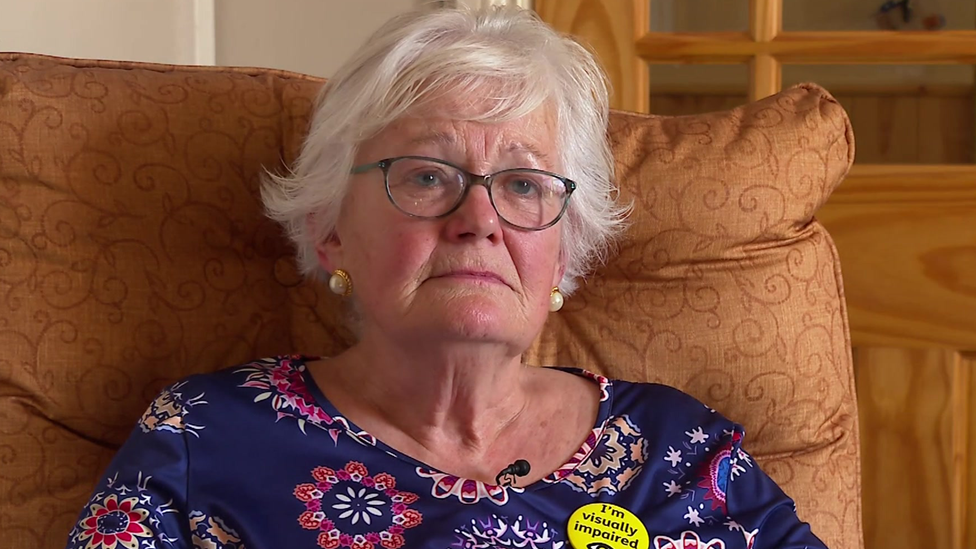
Pam Perceval-Maxwell says several times her appointments have been so severely delayed that she had experienced a deterioration in her sight
'Very frightening'
Pam, 76, from Neyland in Pembrokeshire, requires appointments every four weeks, but on occasions she has had to wait 12 weeks for the procedures carried out by hospital specialists.
She had already lost central vision in her right eye when, three years ago, the sight in her left eye suddenly deteriorated aggressively, caused by a condition called wet macula degeneration.
She is having regular injections as a means of trying to keep fluid behind the retina under control and preserve her sight for as long as possible.
Ideally, she said appointments would be every four weeks, but on occasion she’s had to wait as long as 12 weeks for injections which need to be carried out in hospital.
As chair of her local macula support group, she said many in her position share the same concerns.
“You almost go to bed at night, frightened as to whether you're still going to have your sight in the morning," she said.
“And whilst for the hospital administrators it might just be a delayed appointment - for us it's a missed injection and a missed injection is potentially deterioration of the sight we have. And that's very frightening."
The very longest waits for eye treatment in hospitals vary across Wales, with the most in Cardiff and Vale and Aneurin Bevan health, but hardly any in Swansea Bay.
Meanwhile, latest figures showed more than 80,100 people, whose eyes were most at risk, were waiting beyond the target time for an outpatients appointment, a new record.
The proportion whose target is missed is now consistently more than half of all those waiting on the list.
Adam Sampson, chief executive of the Association of Optometrists said: "The waiting lists get longer and longer, we’ve been having patients coming back to their high street optician saying you diagnosed me with this issue, I’m still waiting for an appointment, I’m fearing for my sight."
He said there was a shortage of ophthalmologists but there had also been a failure by hospitals and trusts to let go of patients to pass them onto community optometrists who are trained and ready and willing to deal with them.
What do the other waiting time figures look like?
Overall hospital waiting times hit another record in July, reaching 796,631 patient pathways.
Because some patients are on more than one waiting list, that means 616,700 actual people are waiting for treatment, which is another record.
Ambulance response times saw the best monthly performance in a year, with 51.8% of "red" life-threatening calls arriving within eight minutes. This was helped by an improvement in handover times at some major A&E units, particularly in the Cwm Taf Morgannwg health board area.
But only 55% of newly-diagnosed cancer patients started treatment within 62 days of the disease being suspected. This is the worst for three months.
The number waiting more than a year for a first outpatient appointment also continues to rise (to 76,132), despite the target being that no-one should now be waiting that long.
A&E attendances reach record high
Performance against four-hour accident and emergency targets has steadied in the last month, although it remains comparatively worse than that in England.
We can also see fewer patients were waiting 12 hours or more in A&E than the previous month. But that still affected nearly 9,500 people.
The average waiting time in A&E was two hours and 38 minutes and doctors' leaders said it was the second worst August for performance since records began.
In recent days, both Cardiff and Vale and Cwm Taf Morgannwg health boards have both reported emergency departments were busy, including a huge spike in attendances at the University Hospital of Wales in Cardiff resulting in "incredibly long waits".
Figures out this month have also revealed that A&E attendances hit a record in 2023-24 – 1,089,703 people, up 8% on the previous year
That’s five times the numbers of people arriving at hospital emergency departments compared with 1959.
That level of increase cannot be explained by a simple rise in the population.
What has been the response?
Conservative health spokesman Sam Rowlands said waiting lists were completely out of control.
“Baroness Morgan [now first minister] cannot pass the buck for these statistics, because she was Labour’s health minister for three years and promised to get them down."
Plaid Cymru's Mabon ap Gwynfor said Labour had no vision for the NHS and said it had lost complete control of it.
The Royal College of Surgeons called for an increase in capacity and the speeding up of surgical hubs.
"Surgeons are increasingly concerned about the disruption long waits are causing to patients' lives, and the risk that they may deteriorate while waiting," it said.
Dr Rob Perry, vice-president of the Royal College of Emergency Medicine, said as well as waits for elective care there needed to be a strategy to address the "dreadful long waits" experienced on a daily basis in A&E.
The health minister said he would challenge those health boards that need to do better and that they must learn from what was being done well and embrace innovation.
He said the NHS was not "broken" in Wales but there was a long way to go to meet targets.
- Published19 September 2024
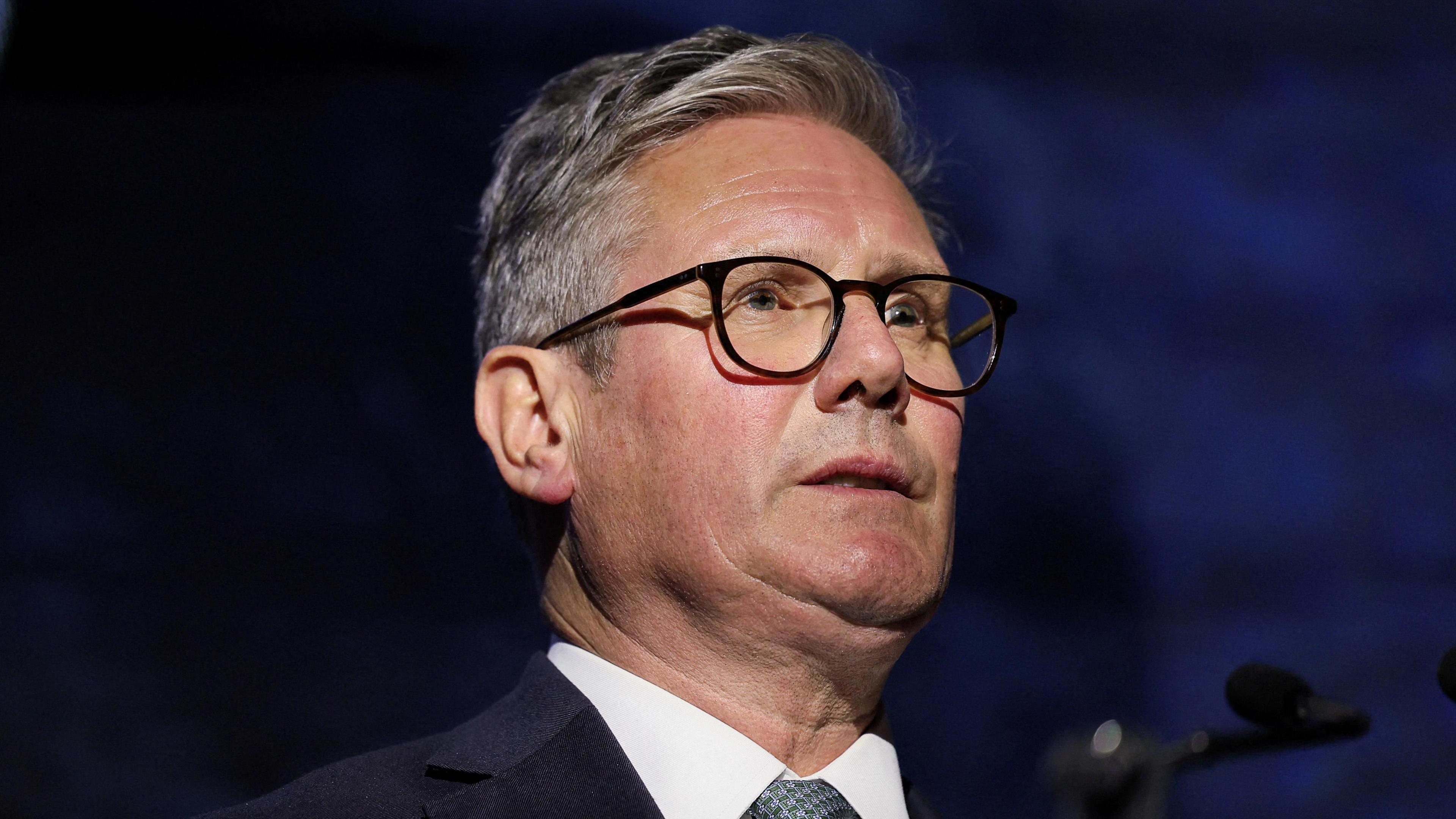
- Published22 August 2024

- Published17 September 2024
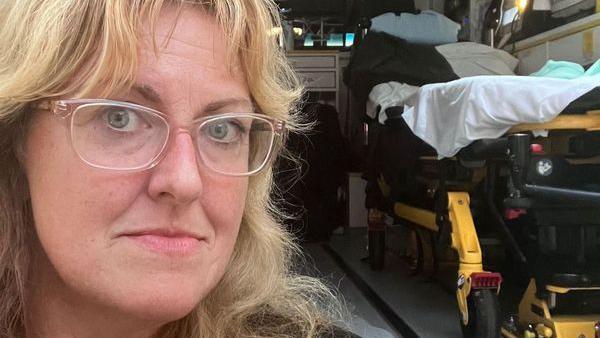
- Published31 July 2024

- Published9 August 2024
